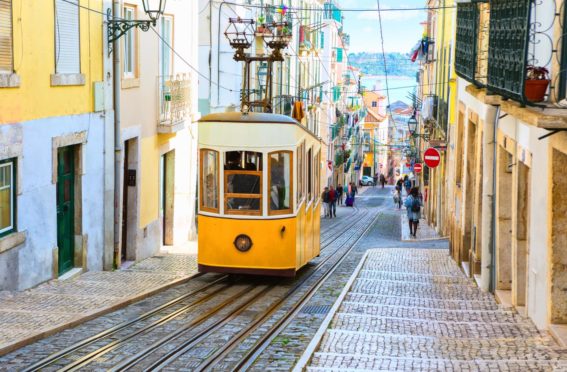If we’d been told in April 2020 one day we’d be dreaming of airline food and long queues at customs, we wouldn’t have believed it.
Now those small moments of irritation have become things to look forward to as we tentatively reopen SkyScanner in the hope of booking a much-needed holiday abroad.
After more than a year of no travel outside Scotland for most, there’s finally a glimmer of hope that international travel may soon be back on the cards.
But as the EU reopens its borders to those who are fully vaccinated, what are the risks of booking a holiday abroad in the current climate?
We are now able to visit a small number of countries without having to quarantine when we come home. So what are the new Scottish travel rules:
Where can you go?
How much will testing cost you?
And how can you protect yourself if things don’t go as swimmingly as planned?
Where can I go on holiday this summer?
The Scottish and UK governments have compiled lists of green, amber and red countries, depending on how safe it is to travel there.
The status of each country is decided based on their vaccination rate, their infection rate, their new variant rate and their access to reliable scientific data.
The 12 countries on Scotland’s green list include Australia, Gibraltar, Iceland, Portugal and Singapore. Visiting a green country means you don’t have to quarantine or self isolate when you return to Scotland.
However, there are some restrictions: Entry to Australia and New Zealand is currently closed to most arrivals to keep infection rates low.
You can only visit Iceland if you have had both vaccine doses. And you must return a negative PCR coronavirus test before being permitted to enter Portugal or Gibraltar.
The majority of countries (186) fall on the amber list. These include most European countries and other popular tourist destinations such as Egypt, Mexico and Thailand.
Travel to these countries is not advised and the UK Government has stated they shouldn’t currently be considered holiday destinations.
If you do visit an amber country, you must self isolate in your home for 10 days when you return to Scotland.
Entering into Scotland from red countries (43) means you must quarantine in a hotel for 10 days upon your return – this must be booked in advance and paid for by yourself, and could cost up to £1,750 for a single adult, according to Money Saving Expert Martin Lewis.
The Scottish Government is advising travellers to be cautious if you do choose to go abroad, as the situation is still precarious and travel advice can change very quickly.
What are the rules about testing?
If you are planning to go abroad, you will need to use private Covid-19 tests – these can not be done through the NHS.
🚦 From Monday 17 May, Scotland will move to a traffic light system for overseas travel.
Find out which countries and areas will be red, amber or green at https://t.co/lmOAaC3DQ7
ℹ️ Countries may move between these lists at short notice. pic.twitter.com/igeitIScSB
— Scottish Government (@scotgov) May 13, 2021
You may be required to complete a test before entering the country you’re visiting, and you must also do a PCR or lateral flow test three days before returning to the UK.
Can I get a refund if my trip has to be cancelled due to travel restrictions?
There are three main ways to protect your trip and increase your chances of getting a refund if it has to be cancelled.
Firstly, buying travel insurance at the same time as your flights and accommodation is good practice. Most insurers will cover you for cancellation if you catch Covid prior to departure.
It will also usually cover your medical costs if you catch Covid abroad. Always double check what your insurance policy covers before purchasing and before departing.
However, travel insurance won’t typically cover you if you wish to cancel due to travel restrictions, because you can’t afford to take time off work to quarantine upon arrival back in the UK, or if you change your mind about travelling due to the risks.
And, according to Defaqto, only 1% of insurance policies will cover you if you need to cancel due to the Foreign Office changing their advice on travel to your destination.
Lockdowns may not be covered
Policies may become void if at a later date the Foreign Office advises against travelling to your holiday destination. This advice is different to the travel traffic light system.
Similarly, your policy won’t cover if you cancel because the UK or Scotland goes back into lockdown.
Just back from Portugal, experiencing green list travel
It may well change over the next few months, but here are a few tips and observations if you’re thinking about doing the same
This thread is my experience in mid May; if you travel, make sure you check up to date guidance
— Caroline Davies (@caroline_gm_d) May 19, 2021
Another way you can protect your trip is through making flexible bookings, or bookings that allow you to cancel up to 24 hours before arrival.
Through many providers such as Expedia, Booking.com and Airbnb, you can make slightly more expensive bookings that allow you to cancel accommodation or pay on arrival instead.
The final way to protect your money is to pay for all holiday expenses with a credit card.
Your credit card company provides you with an additional layer of security, as it is jointly liable with the retailer for bookings worth over £100, up to £30,000 under Section 75 of the Consumer Credit Act.
Unfortunately, given the ever-changing circumstances, there is no surefire way to guarantee getting your money back if your holiday has to be cancelled.
However, following these three steps will improve your chances.
Though we still don’t quite have the go ahead to let the travel bug take over, the thought of holidays resuming this year gives many of us something to look forward to.
The only question left to answer is where will you be jetting off to!


